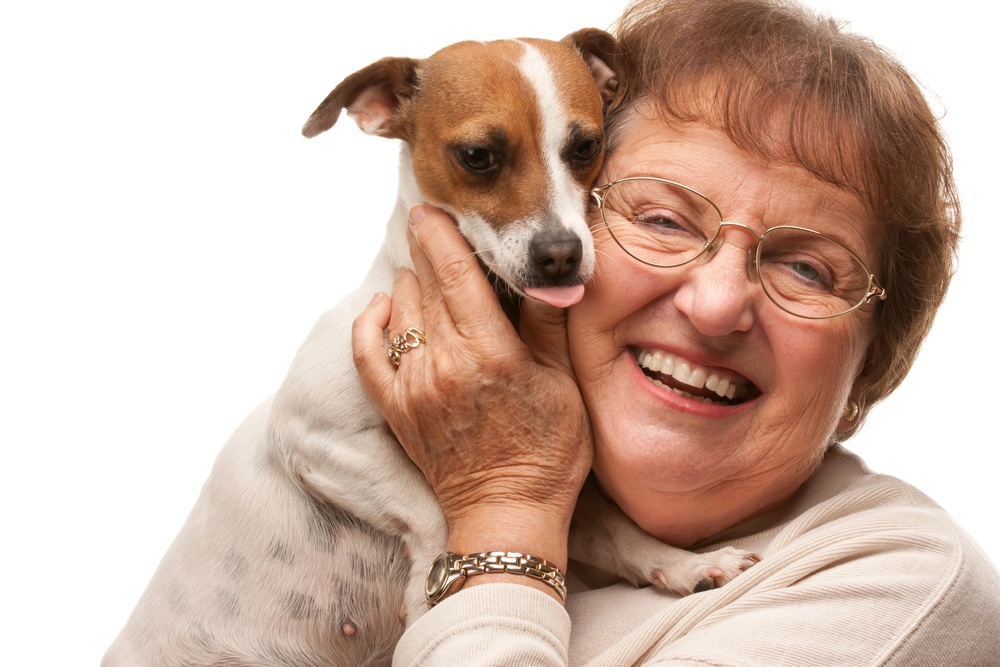It’s widely acknowledged that having a pet can be an enriching experience for individuals of all ages, offering companionship, love, and affection – elements often absent in our fast-paced lives. But what about seniors? Can the elderly still relish the advantages of pet ownership? Absolutely!
However, some seniors may encounter challenges in caring for a pet independently. This is where home care can play a crucial role! Let’s delve into how pets can significantly benefit the elderly in various ways.
Can Pets Enhance the Lives of Older Individuals?
Undoubtedly, having a pet contributes to an improved sense of well-being. A study discovered that individuals over 65 who owned pets had a 36% lower risk of a heart attack compared to non-pet owners. This suggests that the sense of purpose and companionship provided by pet ownership is particularly crucial for seniors.
Beyond reducing the risk of heart attacks, pets can also contribute to increased longevity. Another study found that senior dog owners, on average, lived 22% longer than those without dogs. This could be attributed to the fact that owning a pet encourages seniors to engage in physical activities, vital for those who may face challenges in mobility.
The Advantages of Pet Ownership for Seniors
-
Companionship:
- Seniors can relive heartwarming moments from their childhood, sharing their time and space with a loyal friend, providing a constant companion.
-
Emotional Support:
- Despite lacking verbal communication, pets offer unspoken emotional comfort, providing much-needed warmth and happiness to seniors.
-
Purpose and Meaning:
- Pet ownership restores a sense of purpose and belonging, countering the challenges of retirement, bereavement, and loneliness, keeping seniors cognitively engaged.
-
Promoting Activity:
- Pets encourage physical activity, whether it’s walking a dog or attending special events, offering an additional reason for seniors to stay active and socialize.
-
Stress Reduction:
- Studies reveal that seniors who have owned pets cope better with stressful situations.
-
Blood Pressure Management:
- Pet owners, on average, exhibit lower blood pressure, indicating better cardiovascular health.
-
Improved Sleep:
- Certain pets bring tranquility to their owners’ lives, promoting better sleep through soothing activities like a cat purring or a puppy curled up nearby.
-
Enhanced Self-Esteem:
- Owning a pet helps seniors maintain high levels of confidence and self-esteem, waking up feeling happy and proud.
Assisting Seniors with Pets
For seniors with pets, assistance from caregivers can make the experience more enriching. Here are a few tips:
-
Feeding Assistance:
- Help with purchasing appropriate pet food and ensuring fresh water is provided daily.
-
Activity Support:
- Assist in walking and playing with the pet, ensuring a safe experience for the senior.
-
Health Monitoring:
- Collaborate with the owner to schedule regular vet checkups and vaccinations.
-
Cleanup Assistance:
- Aid seniors in cleaning up after their pets, making this task accessible or performing it if walking is a challenge.
Scientific Insights: The Health Link between Seniors and Pets
Research emphasizes the connection between human-animal interaction and healthy aging. Pet ownership and animal-assisted interventions can provide crucial social and emotional support for older adults, reducing distress, loneliness, and enhancing overall quality of life.
Improved Health Benefits Include:
- Decreased blood pressure, cholesterol levels, triglyceride levels, feelings of loneliness, anxiety, and symptoms of PTSD.
- Increased opportunities for exercise, outdoor activities, better cognitive function, and more socialization.
The Human-Animal Bond and Healthy Aging:
-
Mental Health:
- Addressing anxiety, stress, depression, Alzheimer’s, and dementia.
-
Physical Health:
- Promoting physical activity, managing obesity, and supporting cardiovascular health.
-
Cancer:
- Enhancing quality of life, aiding in pain management, and enabling early detection.
Unveiling Hidden Benefits: Let’s explore some of the lesser-known physical and mental health advantages that pets bring to older adults.
-
Pets Make Their Owners Feel Needed:
- Caring for a living being adds purpose to life, offering a routine that improves physical and mental health.
-
Pets Help Form Connections with Other People:
- Acting as great companions, pets also facilitate connections with others, building a social support network.
-
Pets Relieve Feelings of Loneliness and Isolation:
- The companionship of a dog or cat significantly reduces feelings of loneliness, providing emotional support for older adults living alone.
-
Pets Promote Mindfulness:
- Interacting with pets, who live in the present moment, helps owners become more mindful, reducing stress and promoting relaxation.
-
Pets Speed up Recovery:
- A positive outlook, aided by pets, can expedite recovery after illness or injury, with dogs proving especially effective for patients with physical disabilities.
-
Pets Improve Fitness:
- The daily responsibility of walking pets encourages regular exercise, fostering heart health, lower blood pressure, and stress relief.
In summary, the bond between seniors and their pets goes beyond companionship, offering a myriad of physical, mental, and emotional benefits. Paws and wisdom intertwine to create a fulfilling and enriching journey for the elderly and their loyal animal companions.

